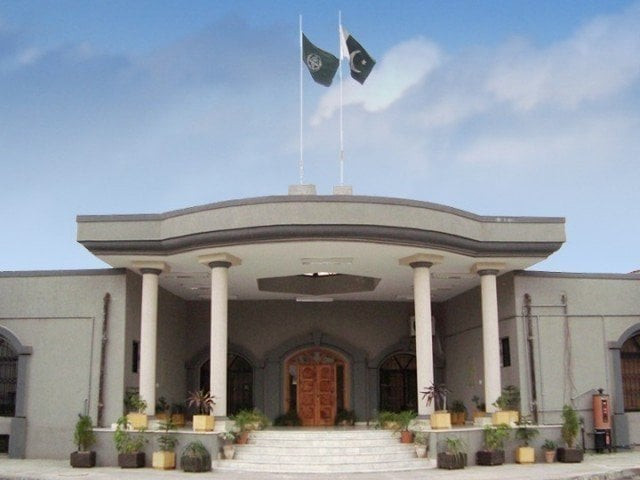PTI set to challenge ECP verdict in IHC tomorrow
Petition will be filed to seek suspension of the ruling in prohibited funding case

The Pakistan Tehreek-e-Insaf (PTI) will challenge the Election Commission of Pakistan’s (ECP) decision in the prohibited funding case before the Islamabad High Court, a senior member of the party’s legal team told The Express Tribune on Monday.
He said that a petition would be filed in the IHC on Wednesday (tomorrow) through senior lawyer Anwar Mansoor Khan. It is also stated that the party had decided to engage Makhdoom Ali Khan in case the government moved a reference for the dissolution of PTI in the wake of the ECP verdict.
Last week, the ECP ruled that the PTI received millions of dollars in funds from 351 foreign companies and 34 foreign nationals. The ECP also ordered issuance of a show-cause notice to the party, seeking explanation as to why the prohibited funds it received should not be forfeited.
Following the ruling, the federal government initiated follow-up actions, activating the Federal Investigation Agency (FIA) to inquire into the PTI’s funds from foreign nationals. The government legal minds were also mulling over a strategy for the dissolution of PTI.
Senior legal minds, including Ali Zafar, Anwar Mansoor Khan, Uzair Karamat Bhandari, Shah Khawar and Chaudhry Faisal Hussain, are part of the PTI legal team, who are devising a counter strategy after the ECP verdict.
“We have found 26 anomalies in the ECP decision,” a senior member of PTI legal team said. “We will challenge the ECP decision in the IHC on Wednesday. The petition will be filed through Anwar Mansoor Khan,” he added. He said that the purpose of filing the petition would be to get the ECP decision suspended.
On the other hand, it is learnt that the PTI has decided to engage senior lawyer Makhdoom Ali Khan in case the government moves a reference in the Supreme Court for the dissolution of PTI under Article 17(2) of the Constitution.
Consultations among the government’s legal minds is ongoing in this regard. However, one section is opposing the move, stressing that the government should focus more on the applicability of Article 62(1)(f) of the Constitution on Imran Khan for giving false certificate about the party accounts.
They believes that if the issue regarding disqualification of Imran Khan arises, the Supreme Court may review its earlier judgements on the disqualification of former three times prime minister Nawaz Sharif.
Senior lawyers say that it will be a daunting task to declare PTI as foreign-aided party. However, a senior law ministry official told The Express Tribune that the law minister believed that it was not a case wherein the PTI could get a clean chit.
The official added that the cabinet members asked the law minister to undergo the process of “opinion-making” and the final decision on the matter would be taken at the next meeting.
Article 17 (2) of the Constitution reads: “Every citizen, not being involved the service of Pakistan, shall have the right to form or be a member of a political party, subject to any reasonable restrictions imposed by law in the interest of the sovereignty or integrity of Pakistan and such law shall provide that where the Federal Government declares that any political party has been formed or is operating in a manner prejudicial to the sovereignty or integrity of Pakistan, the Federal Government shall, within fifteen days of such declaration, refer the matter to the Supreme Court whose decision on such reference shall be final.”
On the government’s decision to file a declaration against the PTI, renowned lawyer Faisal Siddiqi said that constitutionally, it would be a joke but politically, a shrewd move. “It is a strategy to control the PTI politically by opening multiple legal fronts,” he added.
Advocate Salman Akram Raja said the dissolution of a political party with roots in the people had always been a national setback. “The nation suffered when NAP [National Awami Party] was dissolved in 1975. The space was filled with religio-fanstacism,” he recalled.
“The Constitution allows dissolution only when a party is against the sovereignty or integrity of the country,” Raja added. He elaborated that Section 6(3) of the Political Parties Order (PPO) 2002 did not prohibit taking funds from foreign nationals.
However, reading the “sections 2(C)iii and 15 with the Article 17(2) of the Constitution means that if funds from foreign nationals make a party work against the sovereignty and integrity of Pakistan, it may be dissolved”, he said.



















COMMENTS
Comments are moderated and generally will be posted if they are on-topic and not abusive.
For more information, please see our Comments FAQ